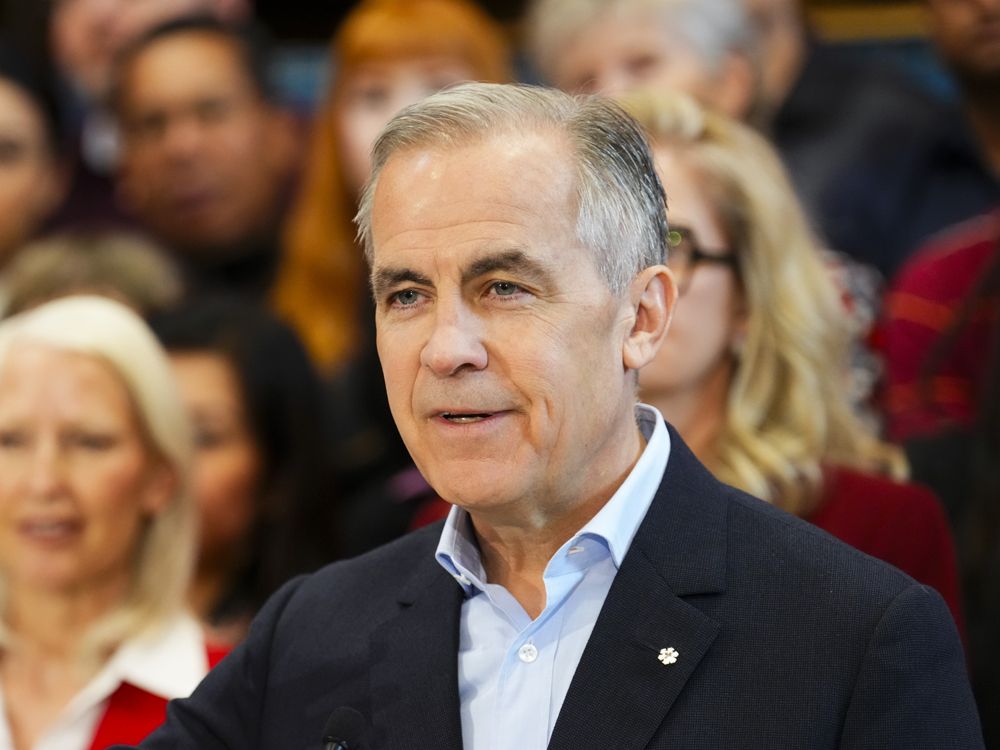Almost a third of Canadian businesses surveyed said capital investment would decline over next two years
Article content

Article content
Article content
Canadian small businesses are running into roadblocks when it comes to investing in their operations and that is expected to continue in the near term.
About 32 per cent of Canadian small businesses intend to slow their capital investments over the next two years, according to a recent survey by the Canadian Federation of Independent Business (CFIB).
Investments in machinery and equipment declined by 13 per cent between 2013 and 2023 when adjusted for workforce size, and CFIB said the lack of investment is making Canada’s productivity challenges only worse.
Advertisement 2
Article content
“If we don’t improve our productivity and make it easier for businesses to equip workers with the tools and equipment they need to be more efficient, Canada risks falling behind its global competitors, losing entrepreneurs to other countries and worsening the standard of living for all Canadians,” Bradlee Whidden, senior policy analyst for Western Canada, said in a news release. “We will all feel the impacts; that’s why governments need to act now and fast.”
Canada has been struggling with lagging productivity since at least the start of the pandemic, with the country now at the bottom of the G7 when it comes to this metric. By comparison, productivity in the United States has climbed by 1.5 per cent annually since the pandemic.
“The fact that Canada’s performance has deteriorated so materially since the pandemic should be of grave concern to all Canadians, particularly younger generations,” Beata Caranci and James Marple, economists at Toronto-Dominion Bank, recently said in a report. “Without improved productivity growth, workers will face stagnating wages and government revenues will not keep pace with spending commitments, requiring higher taxes or reduced public services.”
Article content
Advertisement 3
Article content
One problem for Canadian businesses wishing to expand is the cost of doing so, with 69 per cent saying equipment costs have been a deterrent, according to CFIB, while 56 per cent cited the costs of doing business and half pointed to cash-flow issues as challenges for growth.
In British Columbia, Saskatchewan and Manitoba, the inability to write off provincial sales taxes was a growth barrier for 37 per cent of businesses.
The CFIB is calling on governments to reduce corporate income taxes, improve the permitting process and abandon the proposed changes to the capital gains inclusion rate.
“All governments have a role in tackling Canada’s productivity emergency by adopting policies that make it easier for businesses to make valuable investments,” Francesca Basta, CFIB’s research analyst, said in the release. “Providing small businesses with the financial space and tools they need will increase productivity and boost economic activity, allowing for more production and lower prices at a time when Canadians need it.”
Sign up here to get Posthaste delivered straight to your inbox.
Advertisement 4
Article content


EV sales in Canada accounted for 16.5 per cent of new sales in the third quarter of 2024, not far off from the goal of 20 per cent by 2026.
The projections have hit a snag, however, as the federal government recently decided to end the Incentives for Zero-Emission Vehicles (iZEV) program.
The move has prompted the Canadian auto sector to push for an end to the EV sales mandates all together, arguing that government has not done its part when it comes to building up the charging infrastructure.
Read more here.

- Prime Minister Justin Trudeau to meet with premiers on Parliament Hill to discuss Canada’s response to the threat of tariffs from president-elect Donald Trump
- Today’s Data: CREA home sales, manufacturing sales and wholesale trade for November, MLS Home Price Index, U.S. Consumer Price Index for December



Recommended from Editorial
Advertisement 5
Article content

With a monthly take-home of nearly $7,000 and a whopping $237,225 to invest, 27-year-old Felix hopes to have $6 million invested by the time he turns 65, but is also looking for a home in the near term. Should he keep renting to maintain his savings goals? Or is getting into the housing market the prudent play? Read here to find out.
Calling Canadian families with younger kids or teens: Whether it’s budgeting, spending, investing, paying off debt, or just paying the bills, does your family have any financial resolutions for the coming year? Let us know at wealth@postmedia.com.
McLister on mortgages
Want to learn more about mortgages? Mortgage strategist Robert McLister’s Financial Post column can help navigate the complex sector, from the latest trends to financing opportunities you won’t want to miss. Plus check his mortgage rate page for Canada’s lowest national mortgage rates, updated daily.
Financial Post on YouTube
Visit the Financial Post’s YouTube channel for interviews with Canada’s leading experts in business, economics, housing, the energy sector and more.
Today’s Posthaste was written by Ben Cousins, with additional reporting from Financial Post staff, The Canadian Press and Bloomberg.
Have a story idea, pitch, embargoed report, or a suggestion for this newsletter? Email us at posthaste@postmedia.com.
Bookmark our website and support our journalism: Don’t miss the business news you need to know — add financialpost.com to your bookmarks and sign up for our newsletters here
Article content
Small business investment set to shrink, hurting productivity: CFIB
2025-01-15 13:00:02





